
The academic discipline of psychology originates in the West. So African perspectives were not included in its development, really.
This means that to bring African perspectives into psychology, we have to turn to thinkers and researchers in Anthropology, Philosophy & Theology.
Curry & Jones researched African subjects to find out about intelligence, self-concept, personality & attitudes – but this was from a Western perspective.

From the late 1960s and 70s, African-American psychologists started to bring in Afrocentric ideas, research and theory. However this was filtered through the Afro-American lens and not really African as such.
Psychology faculties have lagged behind at African Universities in general.
Guess the Answers:
QUESTION 11
Sow highlights the importance of honoring the ancestral spirits by traditional Africans. This domain is referred to as the
(1) micro-cosmos
(2) meso-cosmos
(3) macro-cosmos
[democracy id=”1″]
QUESTION 12
A domain that is characterised by the collective existence of traditional Africans is explained by Sow as the .
(1) chrono-cosmos
(2) meso-cosmos
(3) macro-cosmos
(4) micro-cosmos
[democracy id=”1″]
QUESTION 13
According to Sogolo, one of the differences between the cognitive functioning of traditional black Africans and Westerners is that .
(1) both Westerners and Africans have a two-dimensional concept of time.
(2) the Africans do not make any reference to time because of the influence of celestial forces.
(3) Westerners believe only in the macro-cosmic functioning of the universe, while traditional Africans believe in the micro-, meso- and macro-cosmic functioning of the universe.
(4) Westerners cognitive functioning is anchored in rationality, while black Africans make allowance for intuition and emotions.
[democracy id=”1″]
QUESTION 14
According to Nobles, the European ethos rests on the principle/s of (a) , while the traditional African ethos rests on (b) .
| (1) | (a) | intelligence | (b) | wisdom |
| (2) | (a) | physical purity | (b) | emotional purity |
| (3) | (a) | the survival of the individual | (b) | the survival of the community |
| (4) | (a) | role modelling | (b) | submissiveness |
[democracy id=”1″]
QUESTION 15
According to the traditional African perspective, ill-health refers to .
(1) inappropriate use of defence mechanism.
(2) a state of fragmentation and disintegration.
(3) incongruent self concept.
(4) an imbalance in biochemical structures.
[democracy id=”1″]
Obstacles to developing an African Perspective in Personology
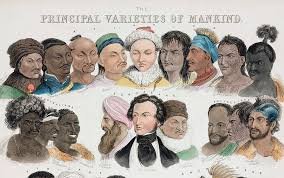
- psychology was implicitly and explicitly racist – comparing ‘primitive’ Africans with ‘modern’ Westerners.
- Psychology in both the USA and South Africa have been elitist and not paid much attention to black and poor people. When it has paid attention to such people, it has often used unsuitable models.
- This in turn resulted in lack of understanding and ineffectiveness in helping black and poor people.
- Western psychologies do not accurately portray African life and mentality, so their bodies of knowledge and theory may not be appropriate or applicable in Africa.
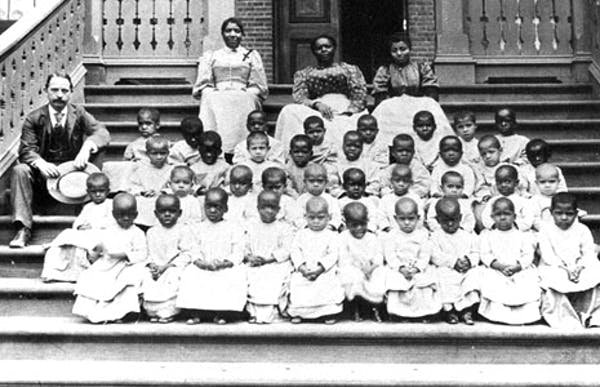
Transitionary Phrase
Africans are in a transitionary phase from traditional to modern Westernised lifestyles.
Peltzer’s African socialisation model has 3 levels of acculturation:
- Traditional: People still living within their established traditional culture
- Transitional: People living and shuttling between the two cultures in their daily lives eg: between the city and the village
- Modern: Where people are fully living in a contemporary industrial and post-industrial society with very little contact with traditional life. Such people may still take pride in their heritage and revert back to their roots at times.
Is there really such a thing as an African perspective?

There are many many traditions, languages and cultures stretching from the Sahara to South Africa, with diverse peoples and histories.
However several authors believe that there is an overarching African perspective, and that these cultures have a unity in
- spirituality
- representation
- expression through art and behaviour
- An overarching set of principles derived from common mythology and collective rituals
Why is an African perspective on indigenous psychology necessary?
Nobles: Seeing all the people in the world through Western conceptualisations is scientific colonialism. To really understand speak to the lived experience of Africans, there is a need for an indigenous psychology.
Nsamenang: African social thought and folk psychology are structured by different ethnotheories and epistemologies. So Western concepts and categories do not fit. Progress in psychology in Africa will only be made with the development of an indigenous body of psychological knowledge.
Indigenous psychology can contextualise and enrich our understanding within local contexts
It can also give more understanding of human variability in psychological functioning and possibilities.
The view of the person and worldview
- holistic: humans form an indivisible whole with the cosmos (God, other people and nature)
- anthropocentric: humanity is the centre and point of departure for the Universe
- Everything belongs together and is connected
Sow: there are three cosmic orders of reality:
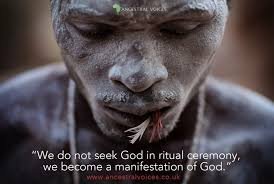
- The macrocosmos: The spiritual and religious domain in which God is encountered.
- The ancestors intervene and help us make contact with God.
- God has withdrawn from and transcended the human realm, so we need the ancestors for daily spiritual and religious life.
- This spirituality is interwoven with day to day life. There is no distinction between sacred and worldly life.
- Collective functioning: Religion is focussed on the community rather than the individual, and is practiced collectively.
- The Meso-cosmos: The Meso-cosmos is the realm of magic, where coincidence, ancestors, malignant spirits and sorcerers are dominant.
- This is an imaginative realm for both individuals and the community. It involves the ancestors, nature and living beings.
- It is how conflict, sickness and death are explained.
- The ancestors can be spoken to in this realm.
- This is the world in which healers and shamans work.
- It is the place where causality originates for what happens in people’s lives.
- “structured collective imaginary” because it structures and determines the day to day psychological fate of people, acting on them both for good and ill.
- So causality is attributed to external agents. The self is part of a greater external network of nature and society.
- And people are not responsible for their own behaviour, because it is caused by external supernatural beings and powers.
- With modernisation, people lose connection with their roots in the macro and eco-cosmic orders of traditional Africans.
- The microcosmos: The domain of the individual person in his or her everyday life
- Influenced by the macro and meso-cosmos.
- Philosophy of Ubuntu: A person is a person because of other people – a moral code that encompasses compassion, care, gentleness, respect and empathy.
- collective existence
| Western | African | |
| psychobehavioral modalities | individuality uniqueness differences | groupness sameness commonality |
| Values & customs | competition individual rights separateness and independence | cooperation collective responsibility cooperation and interdependence |
| Ethos | survival of the fittest control over nature | survival of the tribe one with nature |

So Africans have an extended self-concept encompassing an infinite past, an infinite future, and a larger collective community as well as God and the spiritual realm.
Cognitive functioning and the concept of time
- Intuitive rationality, incorporating emotions and intuition as well as reason
- time is two dimensional with a long past, a present and almost no future.
- time is circular, not linear, and ruled by the rhythms of nature.
- time is created and produced by human consciousness and activity
- The past and the ancestors determine the present and the future (external locus of control)
Optimal development
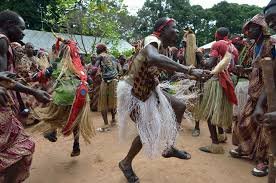
Pasteur & Toldson: Because traditional Africans connect the physical with the spiritual, and better integrate the right and left hemispheres of the brain, they are better equipped to reach and sustain optimal development and psychological health than modern Westerners.
Western mindsets emphasise the left side of the brain – rationality, analysis and logic, which causes an imbalance with the right side of the brain, creating tension and stress.
In traditional African society the right side of the brain, the holistic, experiential and expressive part of the human psyche is given fuller expression. People are more musical and creative.
Life is more harmonious and rhythmic – people dance and sing.
The collective support of the group reduces anxiety and stress and gives a sense of safety.
Rhythm brings structure and coherence to the experience of life, purpose, meaning and connection to the inner self, the sacred, and the collective.
The creative expression of African traditional peoples means that the repressed and dangerous Freudian unconscious has no hold because people are more touch with their own consciousnesses and less repressed and alienated.
Views on psychopathology
- health is a state of wholeness and integration
- Illness is fragmentation and disintegration
- mind and body are not separated, so mental symptoms are embodied and physical symptoms are also mental symptoms.
- So psychological problems may be described as physical.
- And symptoms can be quite non-specific
Causes of illness
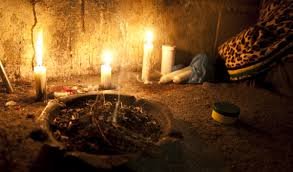
- Stress is often because of relationship problems in the community or with the spiritual world
- pathological behaviour and illness are because of
- disharmony between a person and their ancestors
- Caused by witchcraft
- or evil spirits
- A person may also become ill if they ignore the ancestor’s instructions to become a sangoma.
- So the cause of illness is not a question of what, but of who.
- If the ancestors are neglected, they may punish people and harm them.
- Dreams are a way of communicating with the ancestors.
- The ancestors may speak directly with a person.
- Hearing the ancestors and being bewitched are not necessarily symptoms of schizophrenia.
Psychotherapy
- Dance is used therapeutically along with music and drumming
- Ritual and symbolic objects are used.
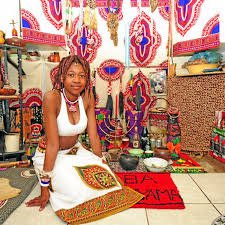
| African healers | Western Psychotherapists |
| Practical relationship | Rogerian relationship |
| Open public community relationship | Confiding private relationship |
| Directive approach | Indirective approach |
| Supernatural and natural world | Natural world |
| Aimed at social cohesion | Aimed at individual empowerment |
| Healer tells client why he has come | Client tells therapist why he has come |
| often uses pharmacology | occasionally uses pharmacology |
| generally prescribes a ritual | rarely prescribes a ritual |
| boundaries are wide. eg client may live with healer | Boundaries are restricted to formal relationship |
| client motivation usually seen as conscious. | Client motivation often seen as unconscious. |
| Dreams are direct communications from Ancestors | Dreams are intrapsychic and symbolic |
| Healer’s personal values are intrinsic to the process | Therapist’s personal values are subjugated |
| Main tools are material such as bones | Main tools are verbal |
| Focus is who caused this | Focus is what is happening |
